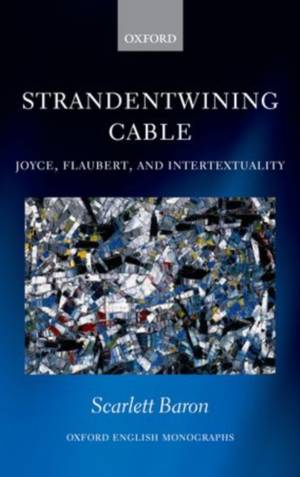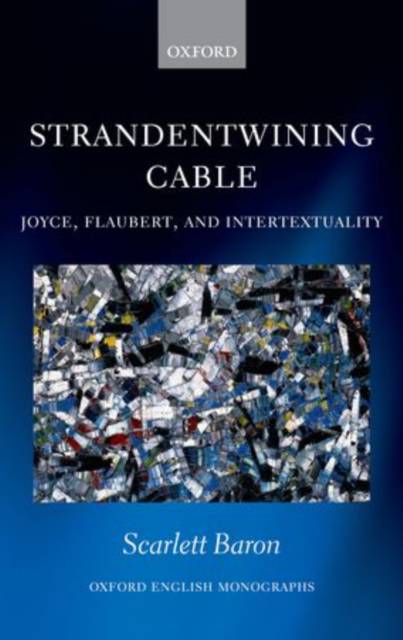
- Afhalen na 1 uur in een winkel met voorraad
- Gratis thuislevering in België vanaf € 30
- Ruim aanbod met 7 miljoen producten
- Afhalen na 1 uur in een winkel met voorraad
- Gratis thuislevering in België vanaf € 30
- Ruim aanbod met 7 miljoen producten
Zoeken
Omschrijving
'Strandentwining Cable' explores the works of two of the most admired and mythologized masters of nineteenth- and twentieth-century prose: Gustave Flaubert (1822-1880) and James Joyce (1882-1941). This book is a study of their literary relationship. In six chronologically ordered chapters it carries out a detailed intertextual analysis of Joyce's engagement with Flaubert over the entire course of his writing career. In doing so it delineates the contours and uncovers the effects of one of the most crucially formative artistic relationships of Joyce's life. Travelling through Flaubert's native Normandy in 1925, on a holiday trip which bears all the appearances of a pilgrimage journey, Joyce acknowledged to himself - in a private notebook devoted to the preparation of Finnegans Wake - that 'Gustave Flaubert can rest having made me.' The book identifies and interprets the traces of Joyce's responses to Flaubert from his early work through Dubliners, A Portrait of the Artist as a
Young Man, Exiles, Ulysses, and Finnegans Wake. Drawing on extensive bibliographical, archival, and manuscript evidence, it sheds light on the timing and circumstances of Joyce's reading of such Flaubertian masterpieces as Madame Bovary and L'Education sentimentale, as well as of lesser known works such as Salammbo, La Tentation de saint Antoine, Trois Contes, Bouvard et Pecuchet, and the Dictionnaire des Idees Recues. Examining letters, notebooks, drafts, and published texts, it shows that in all his creative endeavours Joyce uses Flaubert's writing to think through the dynamics and implications of any text's inevitable relations to other texts, and argues that these reflections helped crystallize his own sense of literature as a dense intertextual web of 'strandentwining cables'. Ultimately, this study contends that the ever more radical and self-conscious nature of the citational methods Joyce adopted and adapted from Flaubert paved the way for the emergence of intertextual
in the 1960s.
Young Man, Exiles, Ulysses, and Finnegans Wake. Drawing on extensive bibliographical, archival, and manuscript evidence, it sheds light on the timing and circumstances of Joyce's reading of such Flaubertian masterpieces as Madame Bovary and L'Education sentimentale, as well as of lesser known works such as Salammbo, La Tentation de saint Antoine, Trois Contes, Bouvard et Pecuchet, and the Dictionnaire des Idees Recues. Examining letters, notebooks, drafts, and published texts, it shows that in all his creative endeavours Joyce uses Flaubert's writing to think through the dynamics and implications of any text's inevitable relations to other texts, and argues that these reflections helped crystallize his own sense of literature as a dense intertextual web of 'strandentwining cables'. Ultimately, this study contends that the ever more radical and self-conscious nature of the citational methods Joyce adopted and adapted from Flaubert paved the way for the emergence of intertextual
in the 1960s.
Specificaties
Betrokkenen
- Auteur(s):
- Uitgeverij:
Inhoud
- Aantal bladzijden:
- 328
- Taal:
- Engels
- Reeks:
Eigenschappen
- Productcode (EAN):
- 9780199693788
- Verschijningsdatum:
- 13/01/2012
- Uitvoering:
- Hardcover
- Formaat:
- Ongenaaid / garenloos gebonden
- Afmetingen:
- 218 mm x 147 mm
- Gewicht:
- 535 g

Alleen bij Standaard Boekhandel
+ 366 punten op je klantenkaart van Standaard Boekhandel
Beoordelingen
We publiceren alleen reviews die voldoen aan de voorwaarden voor reviews. Bekijk onze voorwaarden voor reviews.











